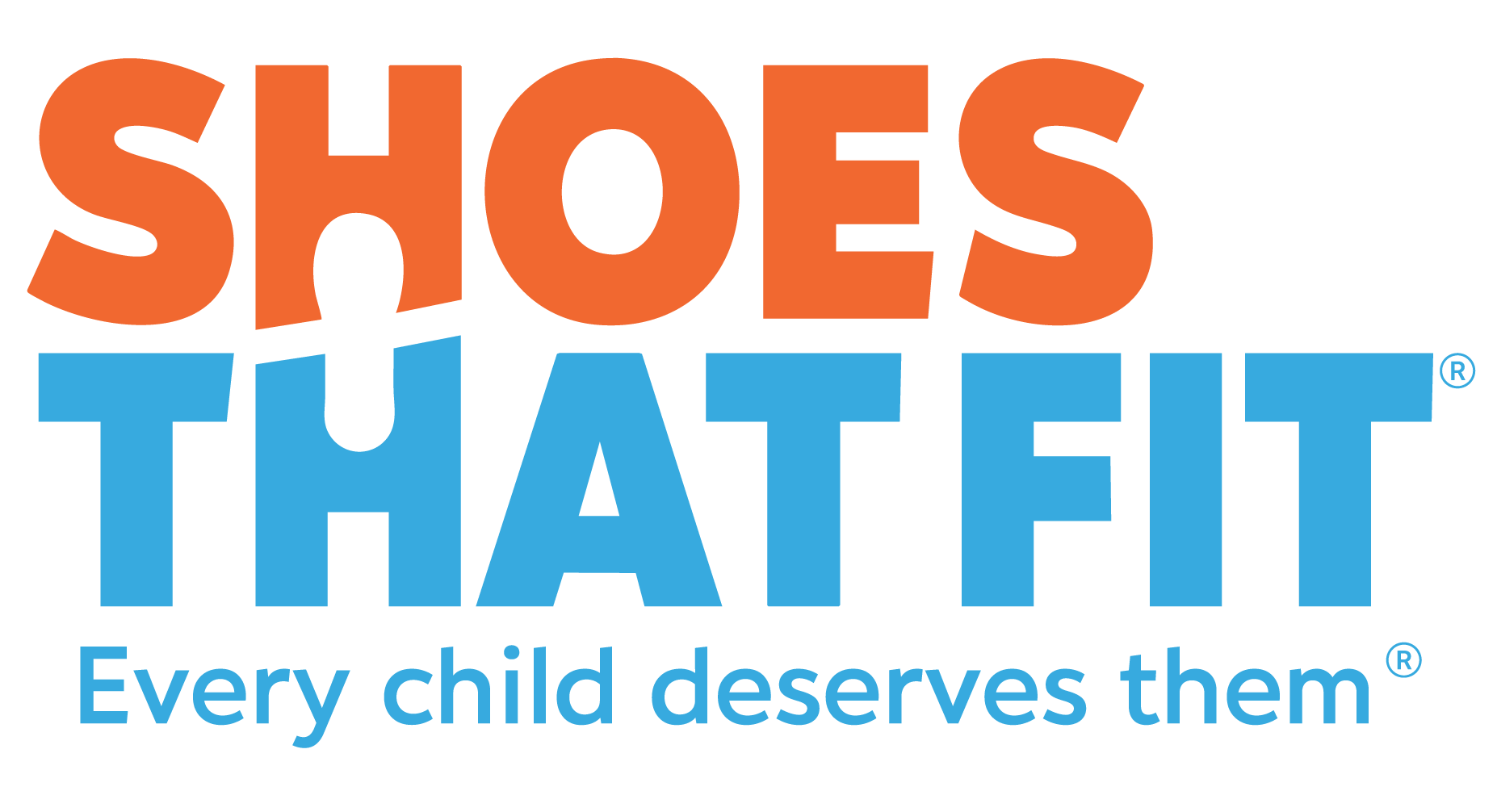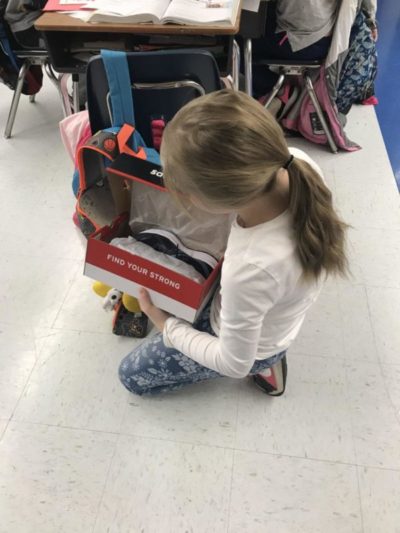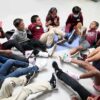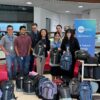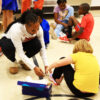By Maria Young of the West Virginia Gazette-Mail
Imagine for a moment trying to measure more than 800 pairs of squirming, wiggling little feet, more than 8,000 little toes, all of them attached to running, giggling children across Kanawha County.
Imagine trying to do it quickly, efficiently and quietly, so as not to interrupt the school day. And, at the same time, trying to pick the children who most needed a new pair of shoes.
That’s the happy but complicated task elementary schools across the county faced toward the end of last year.
At Grandview Elementary School, with more than its fair share of need, it came down to a random selection of kids in each class.
One little boy, a first-grader, was especially excited with his new shoes.
“As soon as he put them on he started kind of like jogging through the office and he went on to say that he’s never felt something so comfortable, that he knew he was going to be able to run really fast now,” said Sharon Brooks.
As the principal there, she sees children in need every single day.
“They seek a lot of attention. A lot of them come from one income families, single parent families. A lot of them the grandparents are raising,” she said.
With all that need, with families and the community working hard to provide, something that so often gets lost in the, well, shuffle is shoes.
There are shoes with holes in them and toes poking through. Shoes that pinch and hurt. Shoes that are many sizes too big, and hard to run or play in because that’s just the size that was available.
“I really believe shoes are so much more than shoes,” said Amy Fass, chief executive officer of the Claremont, California-based non-profit Shoes That Fit.
“For kids, shoes are a status symbol. We don’t necessarily want to put them in the most expensive shoes in the world. We just want them to have good athletic shoes. We want them to be active. We want them to be feeling good about themselves when they’re sitting in classrooms so they’re not sitting around thinking about how embarrassed they are and not paying attention to the lesson at all.”
But when the need is so great, where does the problem end and the solution begin?
In this case, it starts — thousands of miles away in Southern California — with a donor who has strong ties to Charleston.
“I was born there and raised there,” she said. “I have a tremendous loyalty to the state — it tends to do that to people.”
She wanted to do something for the place she still considers home. But she wanted it to be meaningful, to matter. And sometimes, as those with funds to spare can find, that’s hard to gauge.
“I’m really big on finding ways to give in a smart way, in a way that makes, you know, a difference. …To me it’s about not necessarily spending a ton of money but doing something that really has an impact.”
And whatever it was, she wanted to do it anonymously. With a last name a lot of readers might recognize, she didn’t want the story to be about her.
“It’s just writing a check, and making a donation is easy. The part that I think is really hard is what they’re doing,” she insisted, referring to Shoes That Fit. A friend, knowing she was actively seeking a way to make a difference, introduced her to Fass.
The simplicity of the program was appealing.
“To me, that’s such a basic necessity that we really take for granted. I mean shoes that fit. I think in terms of self-esteem and being able to thrive at school and participate in physical activity and just to feel a sense of identity — who doesn’t love shoes?”
A basic necessity, and yet, “I get that for a family that may be struggling, that maybe a pair of shoes may not be as high on the priority list.”
There were three deciding factors. The first was a map showing the organization has been active in 48 states — including West Virginia.
“But when I looked, they were in one school in the entire state of West Virginia. And so that, to be honest with you, that was probably the thing that struck me the most. Like, I’m from here. I can do something about this. I can make an impact here.”
The second was the streamlined process: from the moment she wrote a check, it would take just six weeks for kids to be identified and measured, shoes to be ordered through a wholesaler, and boxes to be delivered.
But the kicker was the letter from other children across the United States — one, in particular.
“The letter that spoke to me… is that someone wrote, ‘Dear Shoe Fairy,’ and I said ‘I want to be a shoe fairy!’ I was like, ‘I love the idea that it’s magical, you know?’”
“They’re name brand shoes. You know. Nike, New Balance, Fila. I mean, my rule of thumb is, if I’m not putting it on my kid, I’m not putting it on your kid,” said Fass, who knows a bargain when she sees one.
“I can almost always get a better price on a good pair of shoes than anybody out there,” she added.
A donation of $3,000 provides 100 pairs of shoes. $10,000 provides 400 pairs. For $25,000 the donor with a soft spot for West Virginia provided more than 800 shoes for elementary school students across Kanawha County.
Deliveries began in mid-December, and continued well into January. Soon after, the thank you notes started to arrive:
“Thank you for everything even the shoes. My mom lost her job, lost her car. She was still the best. She always tries to get us some new stuff. Thank you and I hope you have a great life.”
“I love my shoeus! Thank you so much!! I wish that I culd give you a big hug!!”
“Thank U for the new shoes. I really needed a pair so thanks so much. I also love my new shoes. T Y so much.”
“Thank you for the new shoes. Now I don’t haft to ware Cidny’s. lol.”
With those messages and more came hope that the donor who wanted to make a difference had found her mark.
“What I want for them is to experience the joy and the comfort of having shoes that actually fit. And I want them to be able to thrive in school and enjoy school and have fun with their friends and feel a sense of belonging,” she said.
They’re shoes, but so much more.
“The bottom line is that these kids, they matter. They’re important.”
Reach Maria Young at maria.young@wvgazettemail.com, 304-348-5115 or follow @mariapyoung on Twitter.
